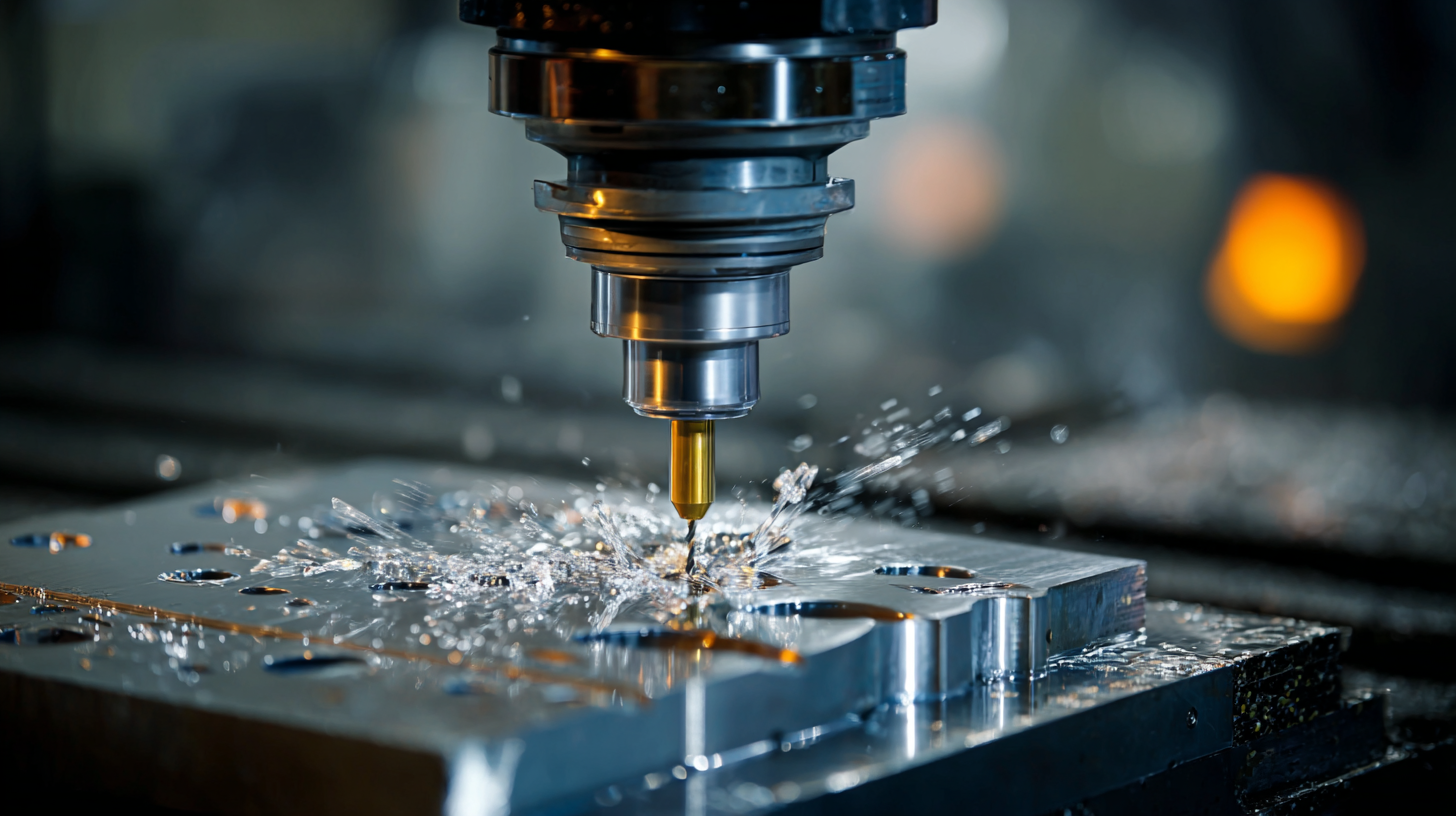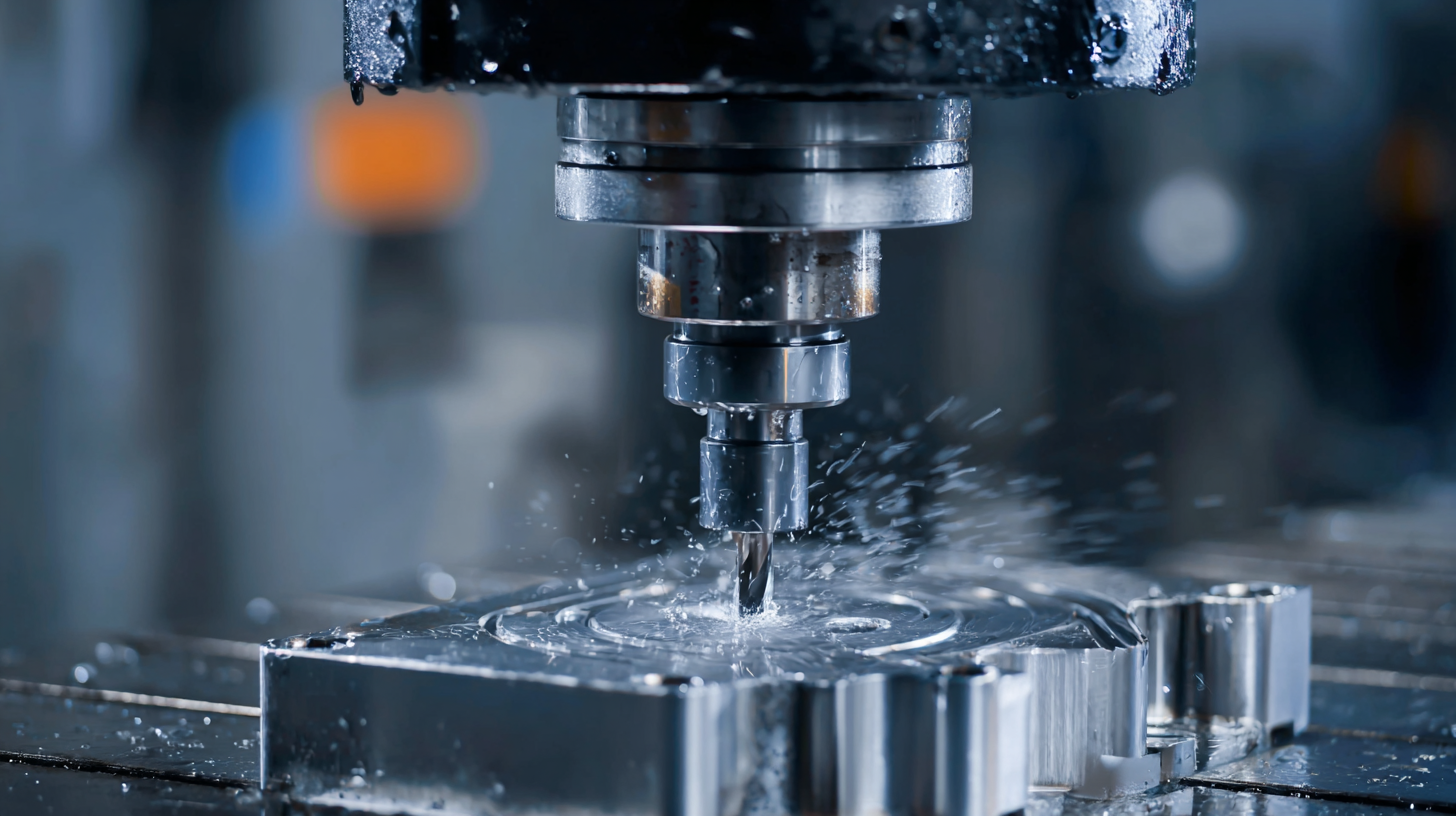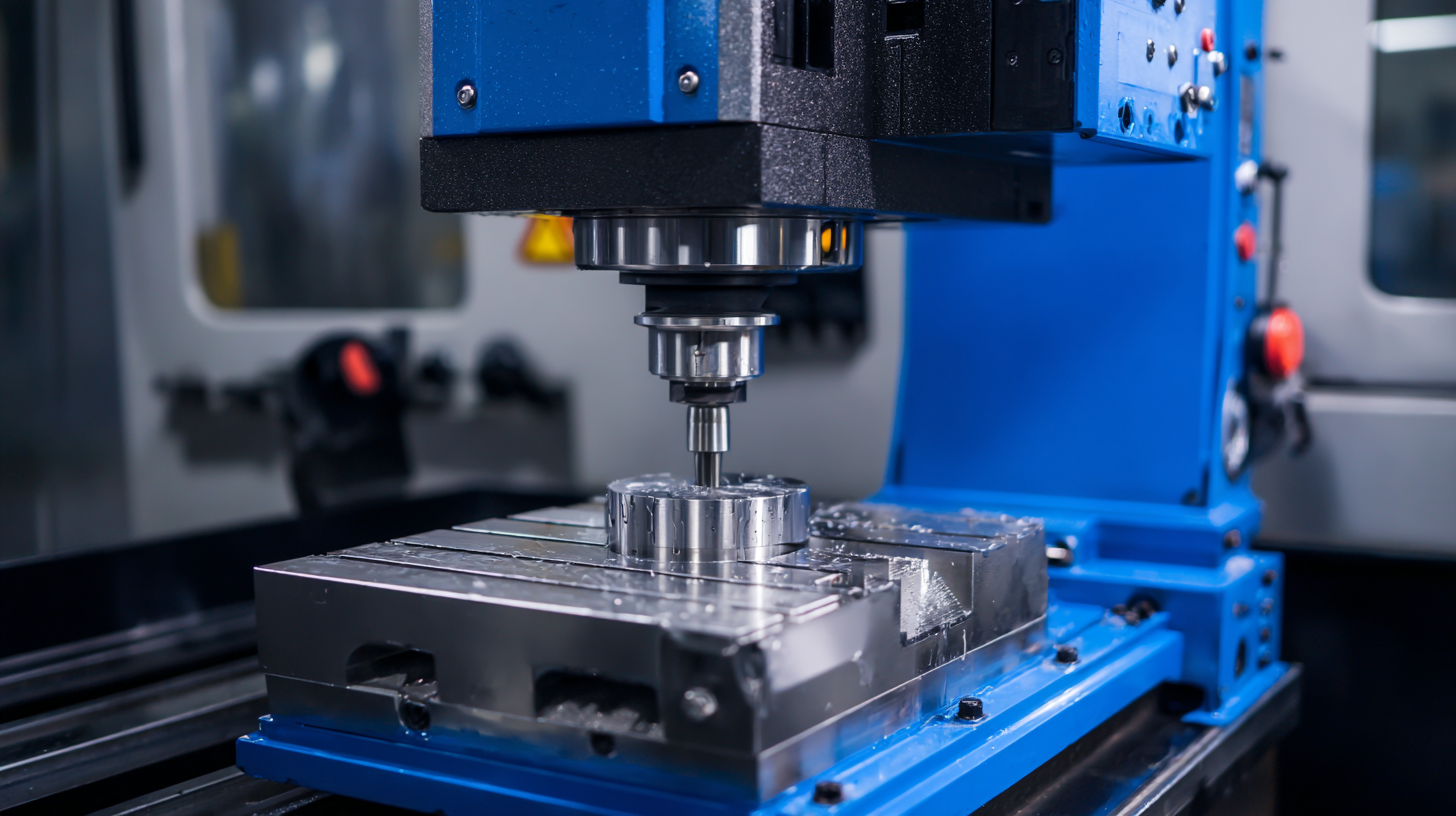Ultimate Checklist for Choosing the Best CNC Cutting Machine for Your Business Needs
In today's rapidly evolving industrial landscape, selecting the right CNC cutting machine is critical for businesses aiming to enhance efficiency and productivity. According to a recent market report by Markets and Markets, the global CNC machine market is projected to reach USD 100 billion by 2025, growing at a CAGR of 6.6% from 2020 to 2025. This growth underscores the increasing demand for high-precision cutting tools across various sectors, from aerospace to automotive. Notably, China's manufacturing industry stands out as a global leader, showcasing cutting-edge CNC technologies that enhance export capabilities.

As businesses seek reliable and efficient solutions, understanding the essential features and specifications of CNC cutting machines becomes imperative. This ultimate checklist aims to guide you in making an informed decision, ensuring that your chosen CNC cutting machine aligns perfectly with your specific operational needs.
Factors to Consider When Selecting a CNC Cutting Machine for Your Business
When selecting a CNC cutting machine for your business, it's crucial to consider several key factors that directly impact productivity and efficiency.
First, evaluate the type of materials you will be working with.
Different CNC machines are designed for specific materials, such as metal, wood, or stone, so it’s essential to choose one that aligns with your primary applications.
Additionally, the cutting technology plays a significant role; options such as
plasma, laser, or waterjet cutting can affect the precision and quality of your final product.
Another vital factor is the machine's size and capabilities. Consider the scale of your operations and the maximum dimensions required for your projects.
This will help determine whether you need a more compact machine for smaller jobs or a larger industrial-grade CNC for extensive production tasks.
Furthermore, don’t overlook the importance of software compatibility, ease of use, and maintenance requirements, as these aspects can significantly influence the overall operational efficiency of your cutting process.
The Importance of Quality in CNC Machines: What to Look For
When selecting a CNC cutting machine for your business, the quality of the equipment is paramount. High-quality CNC machines are designed to provide precision and reliability, which are critical for maintaining production standards. One crucial aspect to consider is the machine's ability to control cutting energy efficiently. Understanding system boundaries, as highlighted in various studies, allows manufacturers to optimize their processes and minimize waste. This kind of knowledge ensures that your CNC machine not only meets the current demands but also adapts seamlessly to future production needs.

Additionally, software plays a vital role in enhancing the capabilities of CNC machines. Open-source options like GRBL facilitate precise control, enabling operators to achieve detailed results with ease. Combining intelligent motion control systems with robust software can significantly improve workpiece quality and machining speed. As manufacturers strive to meet demanding standards, focusing on technology that balances quality and efficiency becomes essential. Investing in a reliable CNC machine and its software not only elevates the manufacturing process but also positions your business for growth in a competitive landscape.
Understanding Different CNC Cutting Technologies for Your Needs
When selecting a CNC cutting machine, understanding the various technologies available is crucial to meeting your specific business needs. CNC technology encompasses several methods, including laser cutting, plasma cutting, waterjet cutting, and router cutting. Each of these methods has unique advantages and is suited for different materials and applications.
For instance, laser cutting offers precision and smooth finishes, making it ideal for intricate designs in metals and plastics. In contrast, waterjet cutting is beneficial for materials sensitive to heat, as it uses a high-pressure stream of water mixed with abrasives to avoid thermal distortion.
As the global CNC machine market is projected to grow significantly, with a compound annual growth rate of 9.9% from 2025 to 2032, businesses need to be proactive in evaluating their options. Understanding the capabilities and limitations of each technology can guide manufacturers in choosing the right machine that aligns with their production requirements and budget. Additionally, staying informed about market trends allows businesses to anticipate future needs, ensuring they invest in the technology that will support their growth and operational efficiency.
Evaluating Cost-Effectiveness: Budgeting for a CNC Machine Investment
When investing in a CNC cutting machine, evaluating cost-effectiveness is crucial for ensuring a smart business decision. The Open Loop Control CNC Machine Tool Market is expected to grow significantly, projected to reach USD 6.8 billion by 2028, up from USD 4.5 billion in 2024. This anticipated growth indicates a rising demand for CNC machines, suggesting a competitive landscape that businesses must navigate adeptly.
Understanding budgeting for a CNC machine not only involves the initial investment but also the total cost of ownership, which includes maintenance, software updates, and operational expenses. The implementation of robotic systems in conjunction with CNC machines has proven to enhance efficiency, particularly in loading and unloading materials, thus reducing labor costs and improving throughput. Given these factors, aligning your budget with potential long-term savings and productivity gains is critical in making an informed choice for your business needs.
How to Assess After-Sales Support and Maintenance for CNC Machines
When selecting a CNC cutting machine for your business, evaluating after-sales support and maintenance is crucial to ensure long-term efficiency and productivity. According to recent industry reports, the plasma cutting machine market has been significantly impacted by factors such as the COVID-19 pandemic, yet it is projected to grow steadily, driven by increasing demands across various industrial applications. A reliable after-sales support system can be the differentiator between a purchase that adds value and one that becomes a constant source of operational headaches.

Investing in a CNC machine with comprehensive after-sales service can drastically reduce downtime. Maintenance plays a vital role in the longevity of these machines; regular servicing and prompt availability of replacement parts are essential for minimizing disruption. The market data indicates that businesses that incorporate structured sales incentives aligned with effective maintenance programs can experience improved bottom lines, as they maintain production levels and reduce the risk of operational delays. Therefore, when assessing CNC machines, prioritize vendors who provide robust after-sales support and proactive maintenance plans tailored to your operational needs.
 English
English  Français
Français 